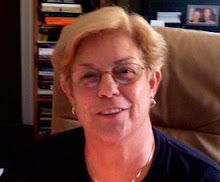
"The River Queen"
(Reviewed by Guy Savage MAY 10, 2007)
“I guess you’ve seen it all on this trip, haven’t you, Mary? You’ve seen hooters and shakers. You’ve been in tornadoes and hurricanes and lightening storms and bugs. You’ve bivouacked on beaches and swam in the river’s mud. You’ve met sorcerers and sea captains, river rats and gypsies…. What more could you ask for?"
This is both a literal and figurative journey for Morris. As the houseboat sails down the Mississippi, there are many stops in the communities along the way, and the journey cause memories of the author’s father to flood to the surface. Morris’s father was clearly a remarkable man, and many of the author’s memories involve mulling over the peculiarities of her parents’ marriage--theirs was not a “loving union.”
Morris captures the often-claustrophobic atmosphere on the houseboat. When the journey begins, there is no running water, and no electricity. Tom brings his dog, a small terrier named Samantha Jean--who is recovering from cancer--along for the trip, and Morris captures the extraordinarily close relationship between Tom and Samantha Jean. In the months that follow, the travelers survive a tornado, an insect infestation, and various mishaps. But more importantly, Morris discovers a sense of closure about the death of her beloved father.
There are some wonderful moments here--at one point, for example, Morris runs into a family about to sail around the world--a journey that they anticipate will take four years. The husband explains that their home-schooled daughter doesn’t have “much choice” in the matter, and Morris’s unsettling moment with the daughter haunts her later. This meeting however, morphs into Morris’s recollections of her daughter, Kate in a tender childhood moment: “I think of our empty house. Our daughter gone. And I recall a night when she was a little girl.” It’s this sort of transitional leap that removes The River Queen as a travel book, and confirms it as more of a personal memoir. As a travel book, it’s disappointing, and Morris misses many opportunities to hook the reader in--for example, she visits the Superman Museum in Metropolis, Illinois, and wanders around. Slightly less than two pages are devoted to the town, George Reeves and the museum. I can’t help thinking that author John Berendt would have handled this material differently, but Morris seems to miss an opportunity here while even she admits she’s “bored.”
If you are hoping for a travel book, you may be disappointed. The River Queen is frequently far too personal and introspective to fall into that category. For a great deal of the time, author Mary Morris does not appear to be having a good time. And at one point, she quips that on the boat: “there is no place to go, really, if one is in a bad mood, or wants to be alone.” There were moments in the book when I wanted the author to ask more questions of those she meets, but instead the book rather frustratingly misses opportunities by swerving away from the external world, and instead the author chooses to turn her gaze inwards towards her personal life and her cherished memories. And whether or not readers connect with Morris’s memories may be determined by some sort of shared experience between author and reader--grief, loss or perhaps even a desire to drop everything and sail down the Mississippi for a while.
Mary Morris's bio:
| Born in Chicago in l947, Morris moved East to go to college. Though she never returned to the Middle West, she often writes about the region and its tug. Morris likes the fact that there is more magnetisim around the shores of Lake Michigan than the North Pole. She feels drawn there and feel an affinity for Midwestern writers such as Willa Cather and Mark Twain who wrote their stories of the Middle West from afar. In her first collection of short stories, Vanishing Animals & Other Stories , awarded the Rome Prize in Literature from the American Academy and Institute of Arts & Letters, Morris writes about childhood and adolescent memories. The Chicago Tribune called Morris "a marvelous storyteller-a budding Isaac Bashevis Singer, a young Doris Lessing, a talent to be watched and read." Morris's stories often deal with the tension between home and away. Travel is an important theme in many of the stories in her three collections, including Vanishing Animals, The Bus of Dreams , and The Lifeguard Stories . It is also a recurrent theme in her trilogy of travel memoirs, including the acclaimed Nothing to Declare: Memoirs of a Woman Traveling Alone, Wall to Wall: from Beijing to Berlin by Rail , and Angels & Aliens: A Journey West . In her five novels, including The Waiting Room, The Night Sky (formerly published as A Mother's Love ) and House Arrest , Morris writes of family, its difficulties and disappointments, its iron grip and necessity, and ultimately the comfort family can bring. Whether writing fiction or non-fiction, Morris sees herself as a storyteller, weaving tales. A Japanese critic once, referring to her non-fiction, told Morris that she is not really a travel writer; rather she writes stories that take place during journeys. Her many novels and story collections have been translated into Italian, Spanish, German, Dutch, Swedish and Japanese. The recipient of many prizes and awards, including grants from the National Endowment for the Arts, the Guggenheim Foundation, and the George W. Perkins Fellowship at Princeton University, Morris is currently working on a generational family saga, set in Chicago, during the jazz age. She lives in Brooklyn, New York with her husband and daughter and teaches writing at Sarah Lawrence College. |
theteach








2 comments:
This book sounds interesting. I think I have a copy of this my MIL gave me. She likes stories like this, while I go for Cinderella with a kick.
What a trip that had to have been!
Post a Comment